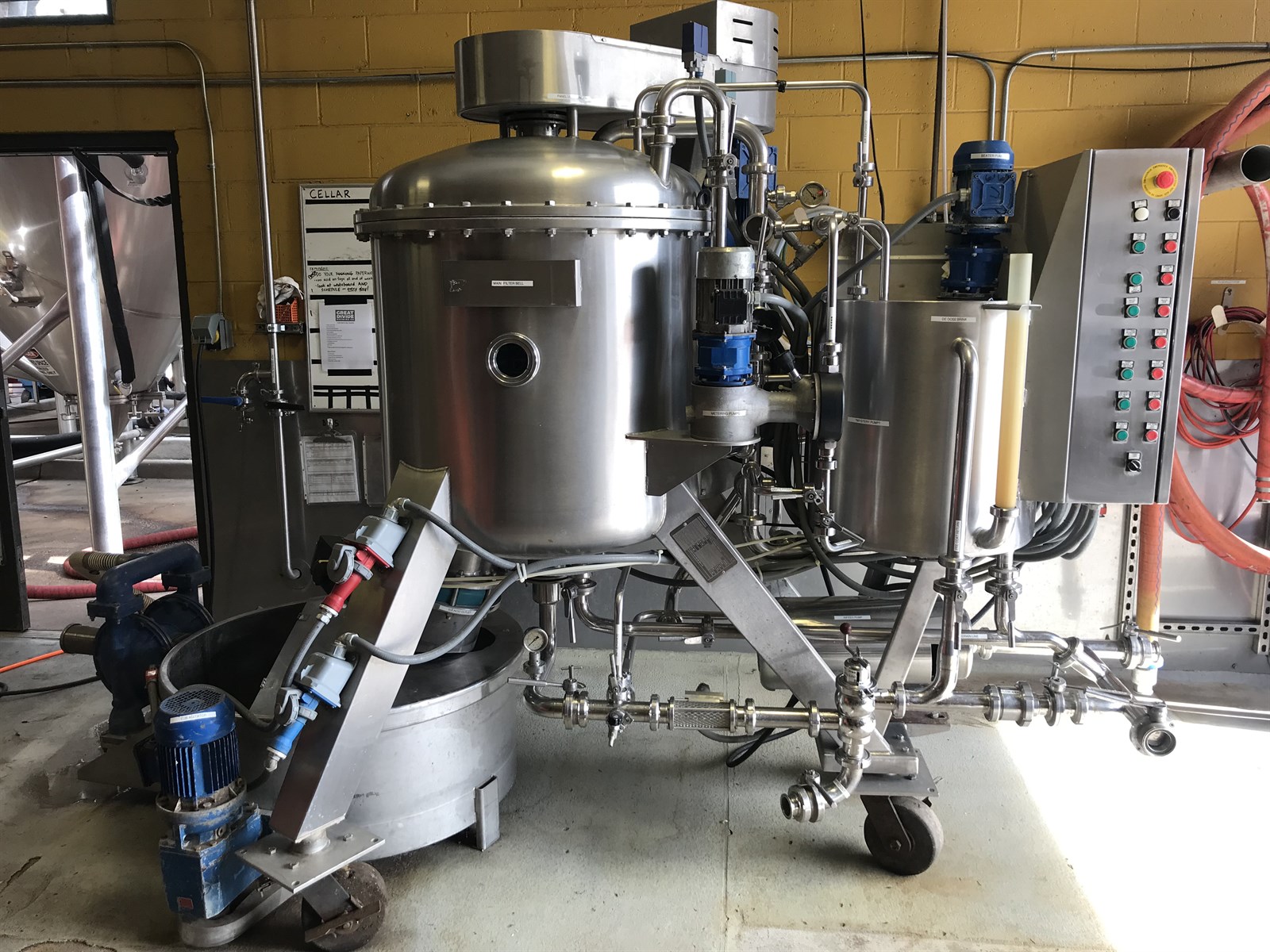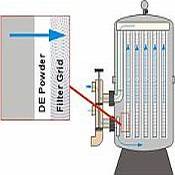Diatomaceous Earth Filtering: Why It’s a Must-Have for Your Water Filtration System
Diatomaceous Earth Filtering: Why It’s a Must-Have for Your Water Filtration System
Blog Article
Diatomaceous Planet Filtering: A Natural Remedy for Superior Water Filtration

Diatomaceous Earth (DE) filtering has actually emerged as an engaging approach for boosting water purification, using the distinct homes of fossilized diatoms. As concerns over water quality magnify, comprehending the benefits and sensible applications of DE filtering system ends up being significantly appropriate.

What Is Diatomaceous Earth?
Diatomaceous earth (DE) is a normally happening, soft, stratified rock that is made up mainly of the fossilized remains of small aquatic microorganisms called diatoms. These single-celled algae have a distinct, silica-based cell wall surface that adds to the distinctive residential or commercial properties of DE. The rock is porous and usually light, allowing it to absorb numerous materials properly.

As a result of its high porosity and absorptive capacity, DE offers numerous applications, including its usage in agriculture, bug control, and, notably, water filtration. The efficiency of diatomaceous earth in filtering system is associated to its capacity to trap and get rid of impurities from water, making it a significantly preferred option amongst those looking for natural filtering options. Its green nature and adaptability further boost its charm across numerous sectors.
How Diatomaceous Planet Filtering Works
The special structure of diatomaceous earth (DE) allows it to function as an efficient purification medium in water purification systems (diatomaceous earth filtering). Composed of the fossilized remains of little, marine microorganisms referred to as diatoms, DE has a very absorbent and porous nature. This complex framework permits DE to trap contaminations and impurities as water flows via it, efficiently getting rid of fragments as small as 1 micron
When water is passed with a DE filter, the liquid encounters a network of tiny pores that capture put on hold solids, bacteria, and various other undesirable materials. The filtration process happens because of both mechanical and electrostatic communications, where bigger fragments are literally entraped within the DE's matrix, while smaller particles might stick to the surface area as a result of charged communications.
Furthermore, DE can be made use of in combination with other purification approaches to boost overall performance. As water continues to stream through the DE layer, it gradually becomes more clear and cleaner, showcasing the tool's ability to boost water quality without the demand for harsh chemicals. This all-natural filtering process highlights diatomaceous earth's function as a lasting and efficient option for water filtration.
Benefits of Diatomaceous Planet Filtering
Performance in water purification is dramatically enhanced via using diatomaceous earth (DE) filtering system, supplying countless advantages that make it a favored option for many applications. One of the main advantages of DE filtering system is its ability to remove a large range of contaminants, consisting of microscopic microorganisms, debris, and even particular chemicals. This capability makes certain that the water cleansed via this approach is not only tidy but additionally safe for usage.
Additionally, DE filters have a high circulation price, which allows for quicker purification contrasted to conventional methods. This characteristic is specifically useful for large-scale operations such as municipal water treatment plants or swimming pools. Using DE also lessens the need for severe chemical additives, advertising a more eco pleasant strategy to water purification.
Additionally, DE filtering system systems are reasonably easy to keep, calling for much less regular substitute than other filtration media. The natural beginning of diatomaceous planet adds to its sustainability, making it an eco-conscious option. Generally, the mix of efficiency, effectiveness, and ecological advantages positions diatomaceous planet filtering as a leading option in the world of water filtration.
Contrast With Typical Water Filters
When evaluating water purification approaches, diatomaceous planet filtering attracts attention in contrast to standard water filters. Traditional water filters, such as activated carbon or ceramic filters, mostly concentrate on getting rid of impurities via adsorption or physical barriers. While these methods are effective for specific contaminations, they might not record smaller fragments, bacteria, or infections as efficiently as diatomaceous planet (DE) filters.
Diatomaceous earth filtering system makes use of the unique structure of diatomite, made up of microscopic, permeable fossilized algae. This allows DE filters to trap fragments as small as 1 micron, offering exceptional purification capacities. Additionally, DE filters can handle larger quantities of water without substantial Learn More Here stress loss, making them ideal for both commercial and household applications.
In addition, diatomaceous earth is a natural and lasting product, positioning less ecological issues compared to some synthetic filter media. In comparison, standard filters usually call for regular substitute and disposal, causing boosted waste.
Applications and Utilize Cases
Diatomaceous earth (DE) filtering system has a varied variety of applications across different industries because of its Source efficient purification capacities. One of the most noticeable uses of DE remains in the food and drink sector, where it functions as a filtration medium for juice, wine, and beer manufacturing. Its porous framework successfully gets rid of impurities, guaranteeing a tasty and clear end product.
In the world of swimming pool upkeep, DE filters are favored for their capacity to catch fine particles, supplying superior water clearness compared to conventional sand filters. Furthermore, DE is utilized in community water therapy facilities, where it assists in the elimination of put on hold solids, germs, and other contaminants, contributing to safe alcohol consumption water.

Beyond water purification, diatomaceous planet locates applications in the farming field as an all-natural pesticide and soil amendment, advertising much healthier plants while minimizing chemical usage. Its absorbing residential or commercial properties make it valuable in different industrial processes, including oil spill clean-ups and as a filler in building and construction products. Generally, the versatility of diatomaceous planet filtering system settings it as a useful option for enhancing water quality throughout multiple domain names.
Verdict
Diatomaceous earth filtering system stands for a lasting and effective technique for water filtration. As recognition of water high quality issues grows, the fostering of diatomaceous planet filters in various applications is most likely to raise, adding to enhanced public health and environmental conservation.
Diatomaceous Planet (DE) filtering system has emerged as a compelling method for enhancing water filtration, using more the one-of-a-kind residential or commercial properties of fossilized diatoms. As water continues to move through the DE layer, it gradually comes to be clearer and cleaner, showcasing the tool's capacity to improve water quality without the demand for rough chemicals.Performance in water filtration is dramatically enhanced via the usage of diatomaceous earth (DE) filtering system, offering many advantages that make it a recommended selection for many applications.When reviewing water purification techniques, diatomaceous planet filtering system stands out in contrast to traditional water filters. Conventional water filters, such as triggered carbon or ceramic filters, mainly focus on eliminating contaminants through adsorption or physical barriers.
Report this page